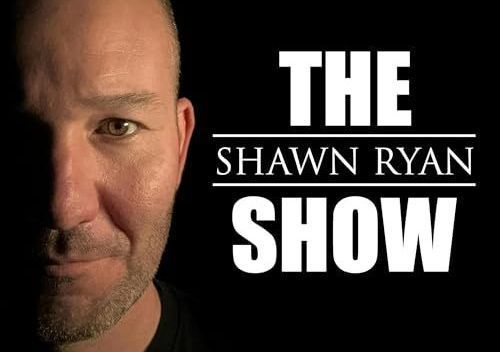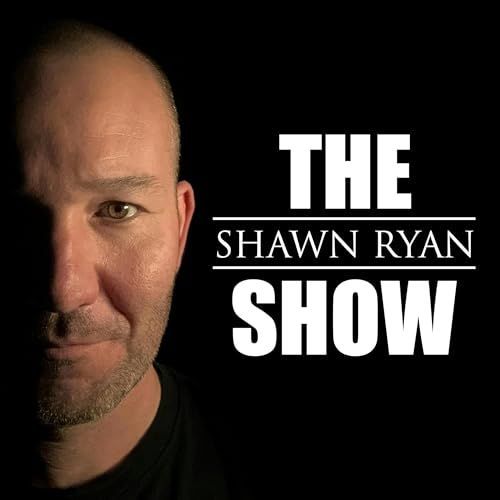Shawn sits with Scott "Kidd" Poteet, a retired U.S. Air Force lieutenant colonel and SpaceX astronaut, who shares experiences from his extensive career as a pilot and astronaut . He discusses the complexities of human life support on the moon and Mars, and the intriguing conspiracy theories surrounding the moon landing. Poteet also reflects on overcoming motion sickness in flight training and the rigorous astronaut training for the Polaris Program.
Personal Resilience and Growth:
Poteet’s narrative is a testament to overcoming personal challenges through determination and adaptability. Born in Chattanooga, Tennessee, and raised in New Hampshire, he describes a childhood marked by competitiveness and academic struggles, earning C’s and D’s due to difficulty focusing. His path to success was unconventional, leveraging his athletic prowess in running to secure a spot at the University of New Hampshire, where he majored in outdoor education. His entry into the Air Force via ROTC was serendipitous, sparked by a flyer promising a ride in a refueling aircraft, despite his severe motion sickness and fear of heights. These hurdles persisted into pilot training, where he endured vomiting in his mask and academic pressures, yet his stubborn resolve propelled him forward. This resilience shines through in his 20-year Air Force career, logging over 3,200 flight hours, and later as an astronaut on the Polaris Dawn mission, where he faced new challenges like mastering complex systems despite feeling outmatched by his crewmates’ expertise. According to this dude’s own account (and we think deservedly), he oozes determination and they spend a good deal of time talking about how important that was…and is.
Evolution of Space Exploration:
As the guys chatted it further, they spent a lot of time on shift from government-led to commercial space exploration, with Poteet’s roles in Inspiration4 and Polaris Dawn (Space X) as pivotal examples. He details his transition from military aviation to working with Jared Isaacman, a visionary entrepreneur who spearheaded the first all-civilian space mission, Inspiration4, in 2021, raising $250 million for St. Jude Children’s Research Hospital. This mission, completed in six months, contrasted sharply with NASA’s multi-year training timelines, showcasing the agility of private enterprise. Polaris Dawn, launched in September 2024, pushed boundaries further by achieving the highest Earth orbit since Apollo (1,400 km), conducting the first commercial spacewalk, and testing Starlink communications. Poteet is pretty enthralled with SpaceX’s innovative approach. For example, he discusses how they developed a new EVA suit in two and a half years, a feat that historically took decades. The duo underscore how commercial entities like SpaceX are redefining space travel, making it more accessible and ambitious, with Poteet predicting that spaceflight could become routine within his children’s lifetimes.
Psychological and Ethical Dimensions of Combat:
Poteet’s combat experiences as an F-16 pilot, particularly during his 2015 Afghanistan deployment against ISIS, reveal the profound psychological and ethical weight of combat. He vividly recalls his first combat mission, dropping a Maverick missile on a vehicle carrying five terrorists. Blew ‘em to bits. The act of killing, even in service of protecting allies, carries a heaviness he grapples with, questioning whether his choices align with divine judgment. This introspection peaks as he reflects on the warrior culture’s paradoxical pride in combat—“I finally got to kill somebody”—versus the Christian ethos of valuing life. The contrast between immediate tactical decisions and long-term ethical reflection illustrates the internal conflict many veterans face. Poteet’s candidness about this duality, coupled with Shawn Ryan’s own SEAL Team insights really do create a enlightening discussion, particularly for those who have never had to shoot at another person. In sum, combat shapes identity and faith for many seasoned warriors. It is a burden and an opportunity.
Faith as a Guiding Force:
Faith emerges as a central pillar in Poteet’s life, evolving from a peripheral childhood formality to a profound anchor. A pivotal moment occurred in 2011 when he saved his daughter Maddie from drowning, hours after their joint baptism (crazy)—a “divine intervention” that solidified his belief in God. This experience, coupled with his space journey, deepens his spiritual perspective. Viewing Earth from orbit, he felt an “overview effect” of insignificance, reinforcing his conviction that life’s purpose transcends self. His faith informs his combat reflections, seeking assurance that his actions were righteous, and guides his post-military aspirations to inspire others. The podcast’s philosophical exchange with Ryan about good versus evil—likening it to a marble where light and darkness vie for dominance—underscores faith’s role in navigating temptation and maintaining authenticity, a struggle Poteet continues to refine.
The Future of Human Presence in Space:
Poteet’s see’s a future for space travel that is more democratic and accessible. He describes Polaris Dawn’s objectives—testing suits, communications, and human physiology—as steps toward lunar and Martian missions. The Starship, with its vast volume equivalent to the ISS, promises scalable habitats, potentially docking multiple units into orbiting hotels or labs. Poteet foresees routine launches, possibly three daily, carrying hundreds, driven by SpaceX’s efficient production and reusable technology. His does acknowledge challenges like adaptation syndrome and psychological isolation, but believes they can and will be overcome.
Conclusion:
Poteet’s story is a good, at times inspirational, but long listen. The most universal and insightful part(s) of the discussion were around combat and the search for moral and spiritual clarity. We’d say that this conversation overall is extraordinary in its breadth and invites listeners to ponder their own resilience, beliefs, and aspirations in an ever-expanding cosmos. The first hour and a half are a all about Poteet’s background pre-combat. The meat of the conversation and most compelling parts come after that point. None-the-less, Poteet is a guy you thank for his remarkable service.
THE PODSCORE: 3 (out of 5) MICS

